‘Give her her flowers while she’s here’: This beloved Miami activist just turned 100
Nancy Dawkins has too many flowers.
“Everybody giving me flowers: I can’t eat these flowers,” jokes one of Miami’s most mature residents. She gestures to the assortment of red bouquets —an ode to her beloved Delta Sigma Theta Sorority — that completely cover her dining room table inside her Liberty City home. Her actual birthday wish? Fruit – and not the Edible Arrangements either.
“Too many hands,” she chuckles.
Dawkins has been arguably the most popular person in Miami since the start of October. By month’s end, she’ll have attended five birthday parties (one comedy show, one drive-by, a gathering at the Carrie P. Meek Senior Center and two all red affairs), received the key to the city and even received a letter from President Joe Biden. Then again, you only turn 100 once.
“I don’t know why I made it this far,” Dawkins says coyly from the Liberty City home she and her late husband Commissioner Miller Dawkins built in 1954. “It’s got to be by God because I’ve had a lot challenges but I pulled through some way. I live by the mantra: do unto others as you would have them do unto you.”
The celebration of Dawkins, who hit the century mark on Oct. 11, is one fit for a woman many deem the queen of Liberty City, maybe even Miami. An educator turned activist whose experience is woven into the neighborhood’s cultural fabric, Dawkins embodies the fight in a city often synonymous with relaxation.
Planting seeds for the next generation
Dawkins was born in Dania Beach. A graduate of Dillard High School, she would later matriculate through then-Bethune Cookman College and Florida A&M University before returning to South Florida to teach in Miami in 1948. Her career would span 35 years — including stints at Holmes Elementary, Liberty City Elementary and Booker T. Washington Sr. High — but in the early days, she would commute from her home in Dania Beach. Children were ultimately her passion.
“Ever since I was a little girl, I liked children,” Dawkins said.
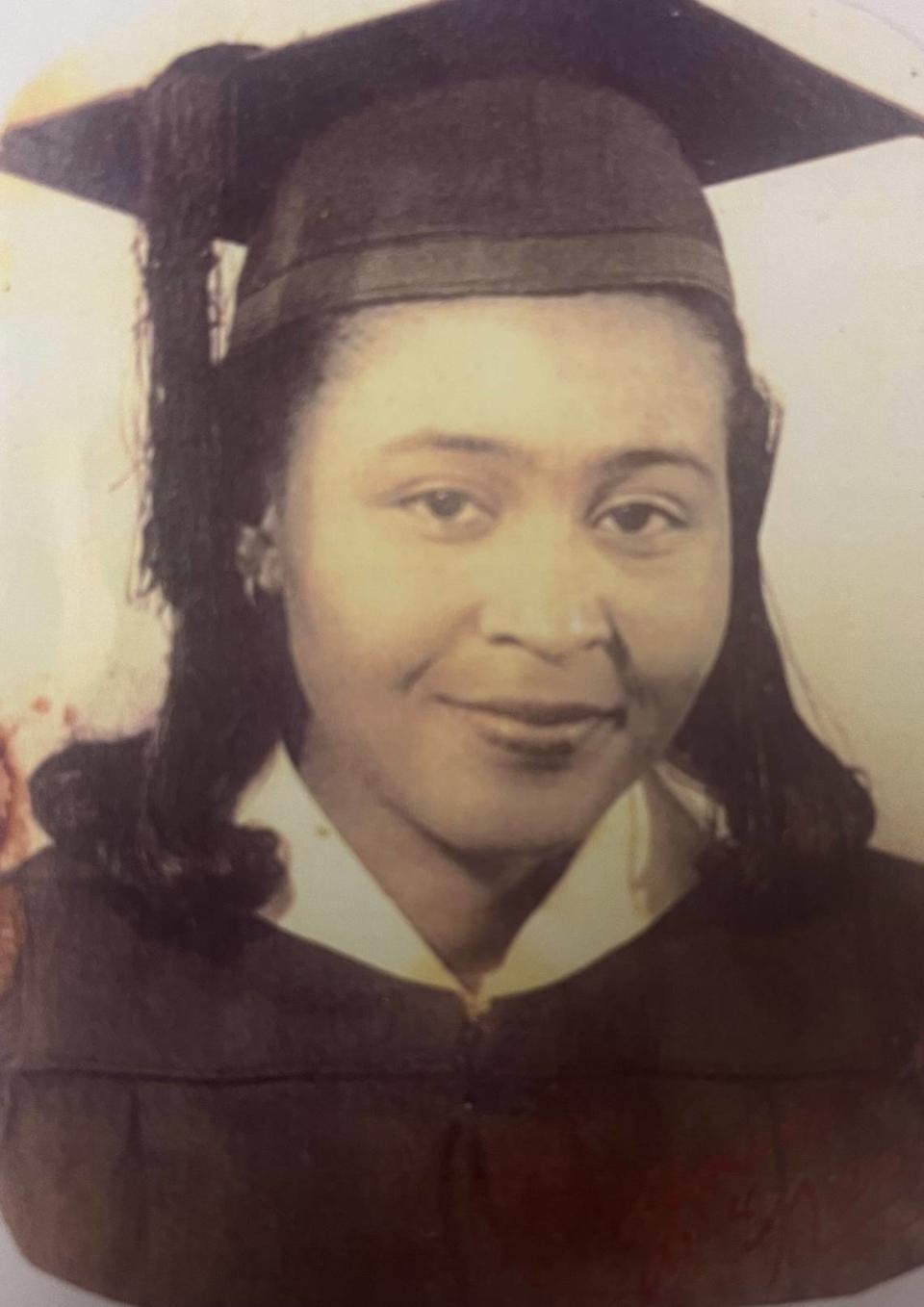
And it showed. Whether co-authoring a program for pregnant teachers or founding the Theodore Gibson Oratorical Competition “to give children an opportunity to express themselves,” Dawkins always wanted more for the next generation.
A shared vision of helping their community led to Nancy and Miller Dawkins’ involvement in politics. The couple had seen a lot – segregated schools, the destruction of the historic Railroad Shop settlement, white flight — when they moved into their Liberty City home in 1954 and knew change was needed.
In the 1970s, Nancy started working on the campaign of State Rep. Gwen Cherry. She would later assist the campaigns of Barbara Carey-Shuler, Congresswoman Carrie Meek and Gov. Bob Graham while her husband was elected to the city commission in 1981.
“The strongest strength that she has is ability to connect people with her goals and allow for the collaboration that allows for opportunities to be able to do things,”said Melba Rose, an activist who met Dawkins as a student at Holmes Elementary.
Nowhere is that more apparent than her involvement with Charles Hadley Park across the street — Nancy Dawkins Way, to be exact – from her home. Along with her husband, Dawkins lobbied for the construction of the the Carrie P. Meek Senior Center, with an Olympic-sized swimming pool and a recreation center. Everyone knows who to call when something goes wrong at the Meek center – even though she claims to have already passed on the baton.
“Anytime they have a problem over there, they come over here to me,” she said with a slight smile.
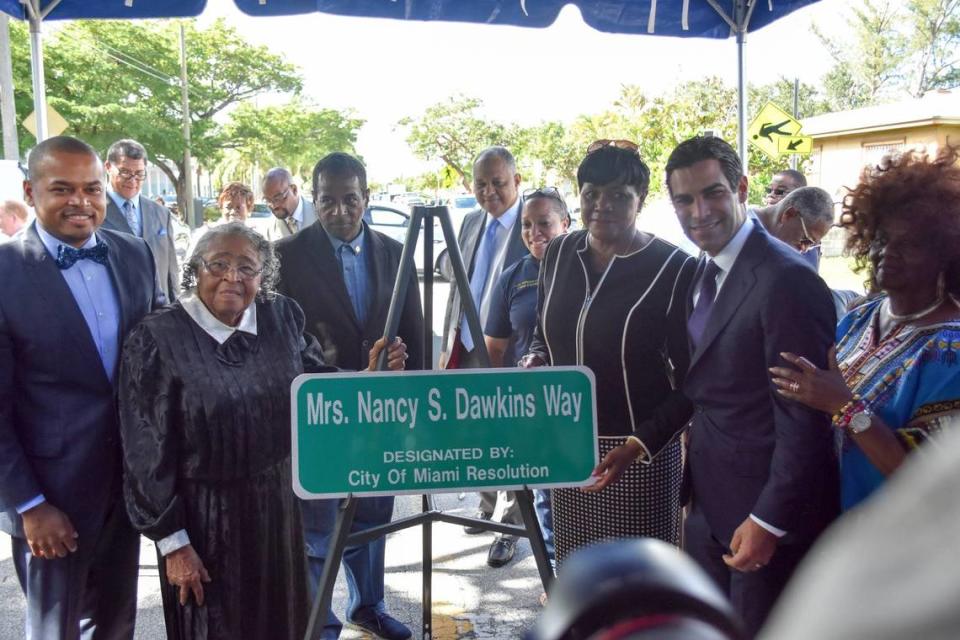
But Dawkin’s contributions extend beyond her work on political campaigns, her participation in the sit-ins that desegregated lunch counters in Downtown Miami, teaching at integrated schools or founding the Northwest Chapter of AARP. It’s in the little moments. The moments that don’t make the front page. The moments when no one is watching. Like the time she took an interest in future Miami-Dade County School Board Member Dorothy Bendross-Mindingall.
A seven-year-old Bendross-Mindingall first met Dawkins in the hallways of Liberty City Elementary. Dawkins risked her job for Bendross-Mindingall whose stellar standardized tests scores caused debate among the school’s leadership.
“With my background, I couldn’t have been that smart,” Bendross-Mindingall said, describing the response from administrators. The future school board member was born to parents who never finished high school and lived in Liberty Square at the time.
So she took the test again. And again. After the third time, Dawkins raised a fuss. She talked to teachers. The principal. Even the superintendent, against her principal’s wishes.
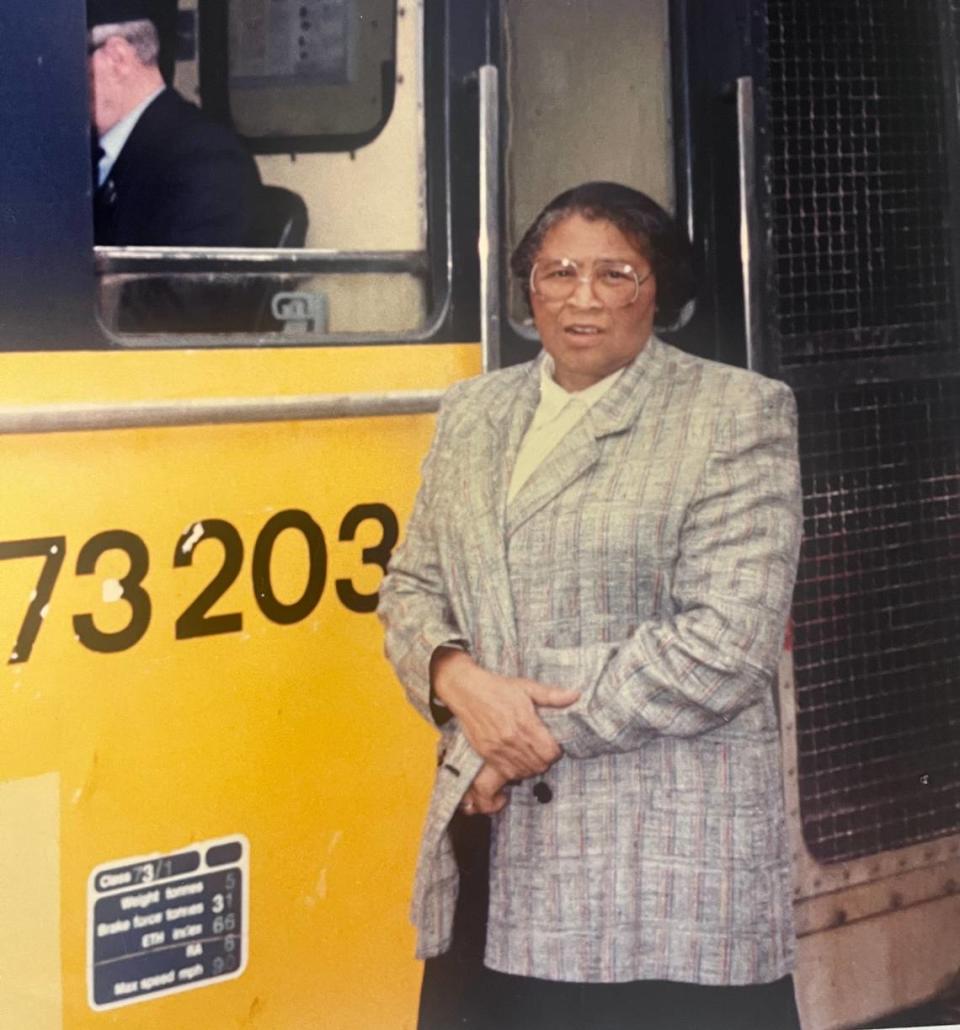
“I just looked at her and could tell she didn’t have nobody to help her,” Dawkins said. “So I said to myself ‘They’re taking advantage of that little girl.’”
Dawkins wasn’t even Bendross-Mindingall’s teacher. She just cared. The situation later resolved itself thanks to Dawkins’ pressure – the future school board member would skip two grades. Even after that, she didn’t stop caring. Dawkins walked Bendross-Mindingall to class on her first day at D.A. Dorsey Junior High and even found her a mentor. The lessons still continue to this day.
“We are here to defend, serve, make sure that whatever we have, we have more than enough to share,” Bendross-Mindingall said everybody can learn from Dawkins’ life.
Allowing people to blossom
Bendross-Mindingall wasn’t the only person Dawkins touched. County Commissioner Barbara Carey-Schuler said Dawkins “taught me how to be more involved” at one of the centenarian’s birthday parties. Miami Mayor Francis Suarez, a former student of Dawkins, called her “a living, breathing example of what we strive to be as people: people who are here for others, only others” at a subsequent birthday party.
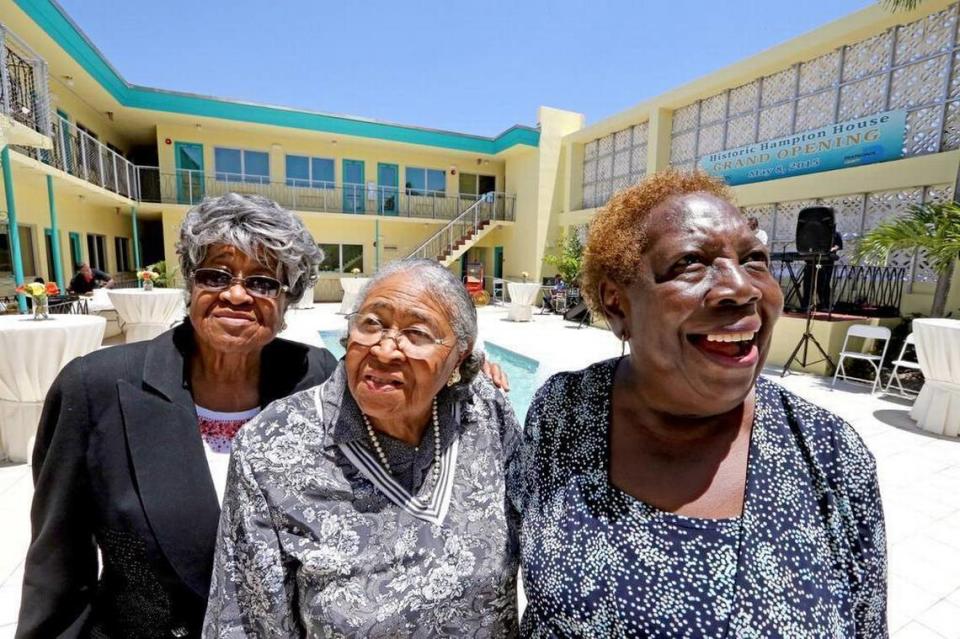
“She has always been able to draw people to her and once you had an experience with her, that experience will always lead you to come back again,” said Rose. Dawkins, she continued, could see something in people that they might not even see themselves.
“A lot of these individuals here who are now identified as leaders, they did not know they could, they did not know they should, they did not know they would,” Rose added. “But her tutelage has allowed some people to blossom into productive people within our community.”
That’s part of what made these celebrations so special. People from various stages of Dawkins’ life — former students, friends and family — got the chance to celebrate a woman who has done so much for so many.
“My grandma is a staple in the community,” said Lenere Dawkins, Nancy’s oldest grandson who helped organize one of the all-red affairs. “She doesn’t really care for the fanfare but it gives people the opportunity to — I know it’s cliche — give her her flowers while she’s here.”
What Dawkins does still care about, however, is education.
“I really would like for the younger generation to get an education,” Dawkins said. “If you get an education, you will really experience what life is all about.”
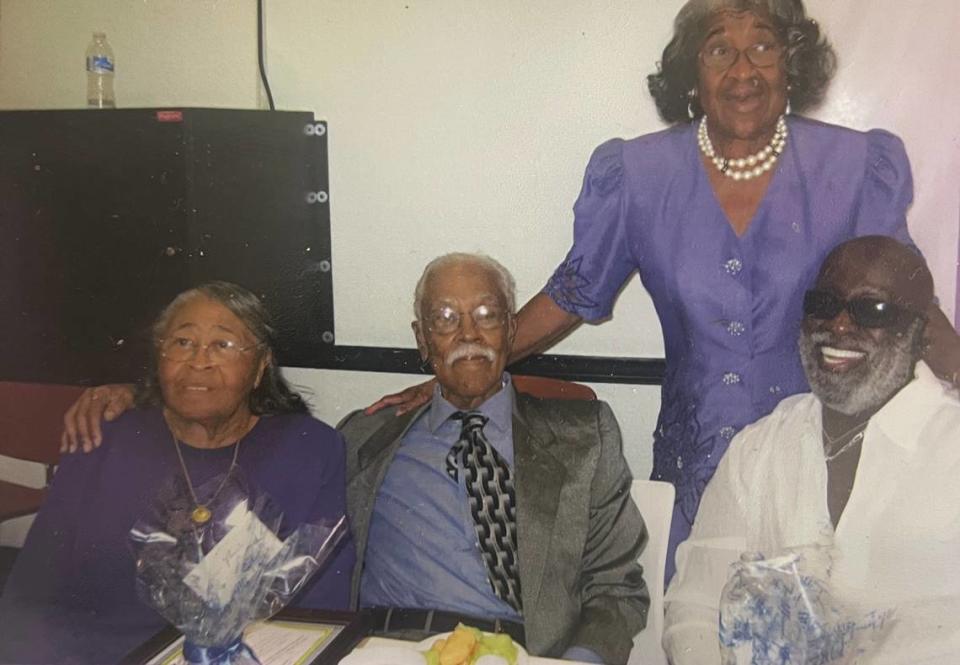
And as Florida’s governor office continues to wage war against Black history, Dawkins stands as a testament of time. Black history, she maintained, cannot be erased because it would be like erasing her.
“Some of us are still living to tell what we went through and I think we should tell it to the young people because they really don’t know,” she added. “Those of us who are in our elderly stage should try to spread the word now more than ever so that they can get it from a living witness.”
At age 100, Dawkins still continues to do what she does best: teach. She no longer drives or walks as well as she used to but there might not be a better source of knowledge if you want to know the real history of Miami. Everywhere she goes -- every club or meeting or event -- she welcomes questions from younger members about her life. Her wisdom is a gift that Miami, as a community, can never pay back. Odds are Dawkins wouldn’t want anything in return.
“I always try to help somebody,” Dawkins said.

